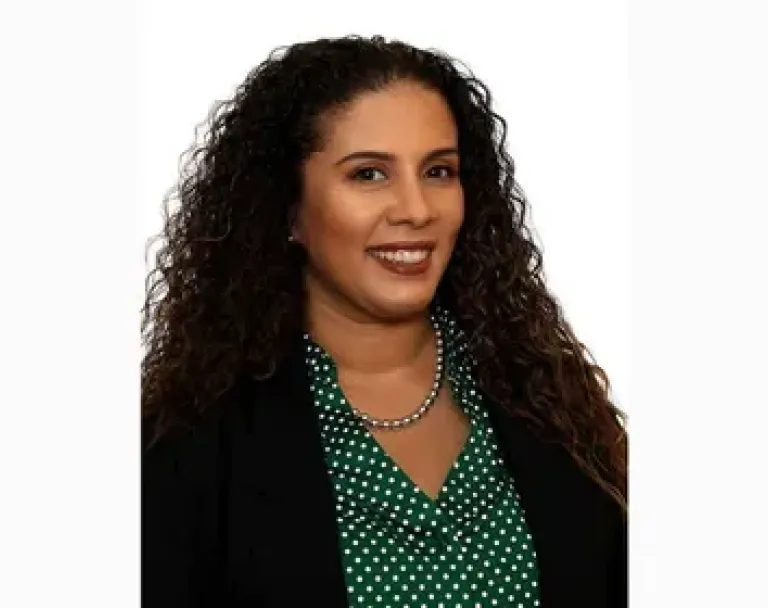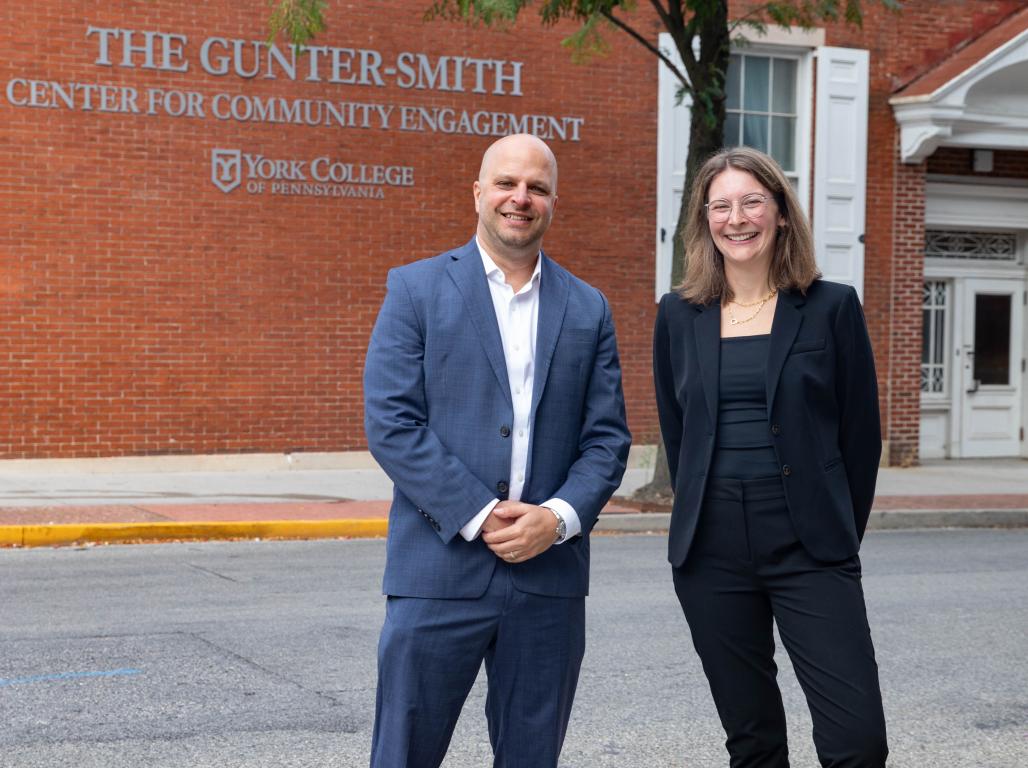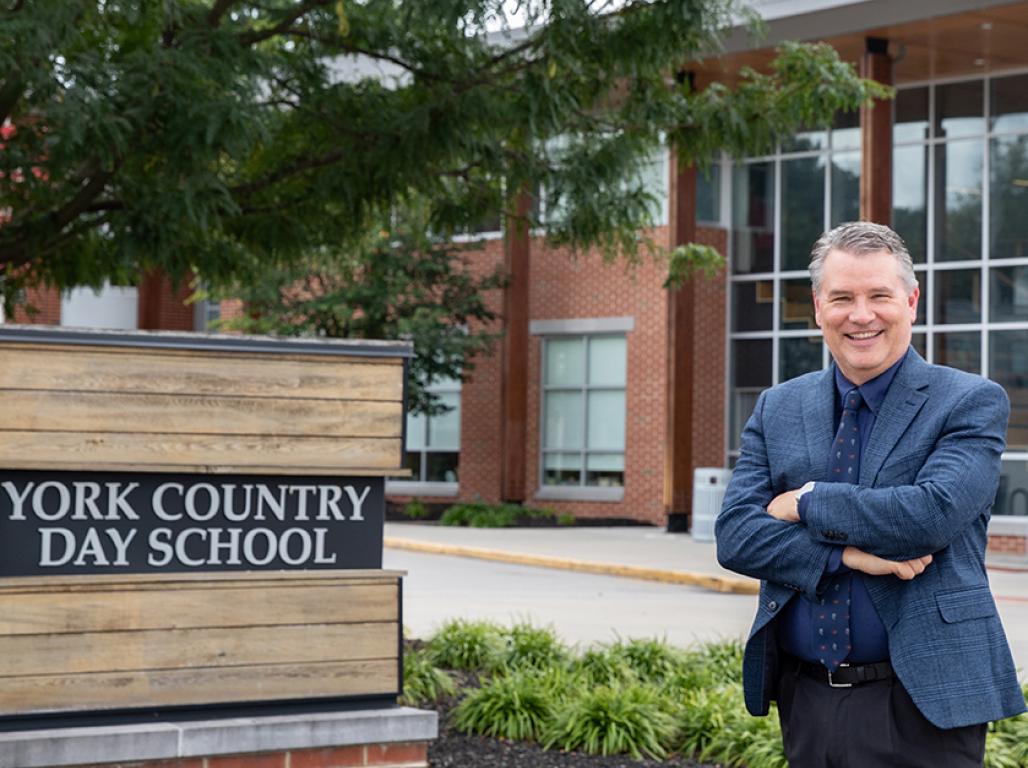After a Lifetime of Overcoming Obstacles, Yccosp Director Helps Students Battle Their Own

After a lifetime of overcoming obstacles, YCCOSP Director helps students battle their own
February 10, 2021 Ritamarie Trippett, Director of York College Community Opportunity Scholarship Program (YCCOSP)Ritamarie Trippett wants to expand the scholarship program and increase diversity, all while providing the support she wishes she’d had in college.
Ritamarie Trippett was on her own. She was 17 years old, standing in front of her college dorm in Buffalo, NY, watching the car that had unceremoniously dropped her off on the side of the road drive away, back to New York City.
She was still on her own when, just a few months later, she lost her full-ride scholarship. In her short life she’d been homeless and raised by a grandparent before being thrust into college life. There was no one, at school or at home, to help her adjust. And quietly, on her own, she was failing.
Now, 20 plus years later, Trippett is making it her mission to be the support she wishes she’d had, as the Director of the York College Community Opportunity Scholarship Program (YCCOSP).
More than academics
YCCOSP offers a full-tuition scholarship plus room and board to accepted William Penn Senior High School students. The program is competitive, beginning with college readiness classes and community service projects in high school, then continuing through college with programs and service.
As Director, Trippett wants to make sure the program isn’t just about academic success. She gets to know each of her students, connecting with them early on. She asks students their favorite color, finds out who likes pizza, and learns who might need extra help or support.
“I think a lot of it is what I wish I could have had,” Trippett says. “Just to have someone ask me if I’m okay. Just to have someone care about me.”
She stays connected, identifying students who are struggling and creating intervention plans to address issues. “We’re not waiting until the end of the semester to say, I don’t know what happened,” she says.
Understanding the challenges
Trippett’s first introduction to YCCOSP was as a William Penn Senior High School counselor, trying to help her students get into the program. She understood the struggles some of them had on a personal level.
“I know what it is to be homeless,” Trippett says. “I know what it is to be raised by a grandparent. I know what it is to have an absentee parent.”
She also knows what it’s like to be a teen parent. Trippett was 19 when she had her first daughter. She spent her first months as a new mom trying to hide that her baby was living in her residence hall. Then she created a program that allowed students with children to live on campus together.
“I couldn’t go back home. That wasn’t an option,” she says. “I always had to look forward no matter what happened.”
Despite her challenges, Trippett forged a path of success for herself. She was the first in her family to graduate from college, then graduate school, all while serving in the Army Reserves.
Trippett joined the military her junior year of college, and revelled in the teamwork and camaraderie she found there. As a single parent, she wasn’t eligible to serve full-time like she wanted. But serving state-side she found fulfillment helping others prepare to deploy in her role as Army Reserve Human Resource Specialist.
When the opportunity to become Director of YCCOSP presented itself, she jumped at the chance to have even more impact on the program and the students it serves.
Room for growth
Under Trippett’s leadership, YCCOSP is putting even more emphasis on community service. She considers the student as a whole, not just academics, when making program acceptance choices. And she makes sure her students understand what an incredible opportunity it is to receive free college tuition. “How do we say ‘thank you’? The only way is by service,” she says.
Increasing diversity and visibility, growing the program, and building a center that supports the program are all goals for the future. And even as the program grows, the support for each individual is constant. Trippett did not have that support, but her students will.
Categories


